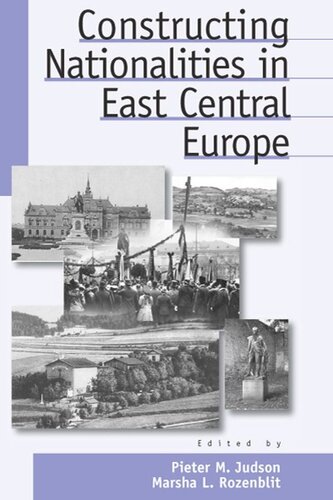

Most ebook files are in PDF format, so you can easily read them using various software such as Foxit Reader or directly on the Google Chrome browser.
Some ebook files are released by publishers in other formats such as .awz, .mobi, .epub, .fb2, etc. You may need to install specific software to read these formats on mobile/PC, such as Calibre.
Please read the tutorial at this link: https://ebookbell.com/faq
We offer FREE conversion to the popular formats you request; however, this may take some time. Therefore, right after payment, please email us, and we will try to provide the service as quickly as possible.
For some exceptional file formats or broken links (if any), please refrain from opening any disputes. Instead, email us first, and we will try to assist within a maximum of 6 hours.
EbookBell Team

4.0
16 reviewsThe hundred years between the revolutions of 1848 and the population transfers of the mid-twentieth century saw the nationalization of culturally complex societies in East Central Europe. This fact has variously been explained in terms of modernization, state building and nation-building theories, each of which treats the process of nationalization as something inexorable, a necessary component of modernity. Although more recently social scientists gesture to the contingencies that may shape these larger developments, this structural approach makes scholars far less attentive to the “hard work” (ideological, political, social) undertaken by individuals and groups at every level of society who tried themselves to build “national” societies. The essays in this volume make us aware of how complex, multi-dimensional and often contradictory this nationalization process in East Central Europe actually was. The authors document attempts and failures by nationalist politicians, organizations, activists and regimes from 1848 through 1948 to give East-Central Europeans a strong sense of national self-identification. They remind us that only the use of dictatorial powers in the 20th century could actually transform the fantasy of nationalization into a reality, albeit a brutal one.